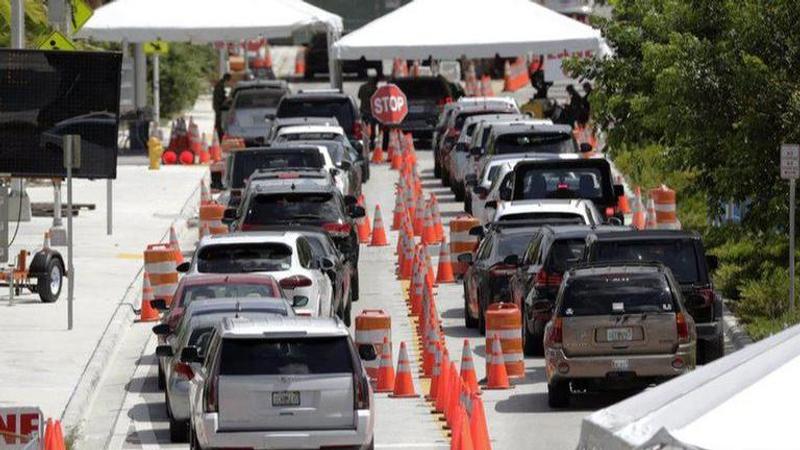Published 10:38 IST, July 1st 2020
Coronavirus' spread in GOP territory, explained in 6 charts
Coronavirus first spread in the United States as a mostly coastal and big-city scourge, sparing many rural areas, small towns and even small cities. Translated into U.S. political geography: The virus hit Democratic areas first.

Coronavirus first spread in the United States as a mostly coastal and big-city scourge, sparing many rural areas, small towns and even small cities. Translated into U.S. political geography: The virus hit Democratic areas first.
No more. An Associated Press analysis of coronavirus case data shows the virus has moved — and is spreading quickly — into Republican areas, a new path with broad potential political ramifications.
States that President Donald Trump won in the 2016 election account for about 75% of the new cases, a trend that has accelerated since the end of May. Counties that voted for Trump in 2016 have seen cases and deaths rising — now seeing an impact nearly even with counties that voted for Democrat Hillary Clinton.
The virus's spread into red America could scramble partisan divisions over the disease. In the first phase, the virus was an undeniable reality for many Democrats, and it largely fell to Democratic governors and mayors to issue the strictest stay-at-home orders that helped slow the economy to a crawl.
Trump’s base, meanwhile, wasn’t so directly affected. His supporters have been
Already the latest surge is forcing
New York’s Democratic governor, Andrew Cuomo, last week pulled no punches in seeking some vindication for himself and other Democrats who battled the virus first and faced skepticism from Trump and other Republicans.
“You played politics with this virus, and you lost,” he said on CNN, indirectly addressing Republicans who downplayed the virus. “You told the people of this state, you told the people of this country, the White House: ‘Don’t worry about it. Go about your business. This is all Democratic hyperbole.’”
“It was never politics,” Cuomo said. “It was always science.”
Counties won by Trump are seeing new cases in the last week at almost the same rate as those counties that Trump lost to Hillary Clinton in 2016. To be clear, cases are increasing in both groups. But that follows Clinton counties having a declining share of new cases for much of the spring after imposing initial rounds of social distancing guidelines and restrictions on business and public gatherings.
As with COVID-19 cases, the distribution of deaths has leveled off as well. The initial surge in March and early April occurred in Democratic counties. But those counties then saw a sharp drop in deaths per million residents. Trump counties, meanwhile, moved upward, stabilized and then started falling, but at a lower clip than the Democratic counties. Now, there's a much narrower gap between the two groups.
Perhaps the most marked reversal when measuring coronavirus trends by political geography comes when looking at cases on a state-by-state basis. Those that Clinton won in 2016 accounted for considerable majorities of the earliest cases. Well into March, those states diagnosed four out of five new cases. But since then, the trend lines have taken opposite trajectories. States Trump won account for about three out of four of the newest cases.
COVID-19 deaths broken down by states' presidential vote yields similar conclusions. Initial measures showed spikes in Clinton's 2016 territory, with Trump's states lagging. But trend lines through the spring brought parity, and Trump states have on occasion surpassed Clinton states in rates of new deaths.
One clear pattern: a state's governor seems to matter. New cases in states with Republican governors, regardless of how those states voted in 2016, now considerably outpace those in states run by Democrats. That circumstance comes after months of trending away from the initial analysis, when Democratic states were the hotspots. That trend roughly reflects how the two parties' governors have approached the pandemic. GOP governors generally have leaned more heavily in favor of lighter government restrictions on social gatherings and business operations. Democratic governors, on average, have embraced stricter restrictions and more forcefully advocated for caution.
The pattern is repeated when looking at deaths. States with Republican governors have seen an increase as an overall share of the national measure. Democratic-run states, meanwhile, have dropped over time. In recent weeks, there's been rough parity and smaller spikes and drops between the two groups of states. But it's another notable correlation between the public health outcomes and the policies governors have chosen.
Updated 10:38 IST, July 1st 2020




